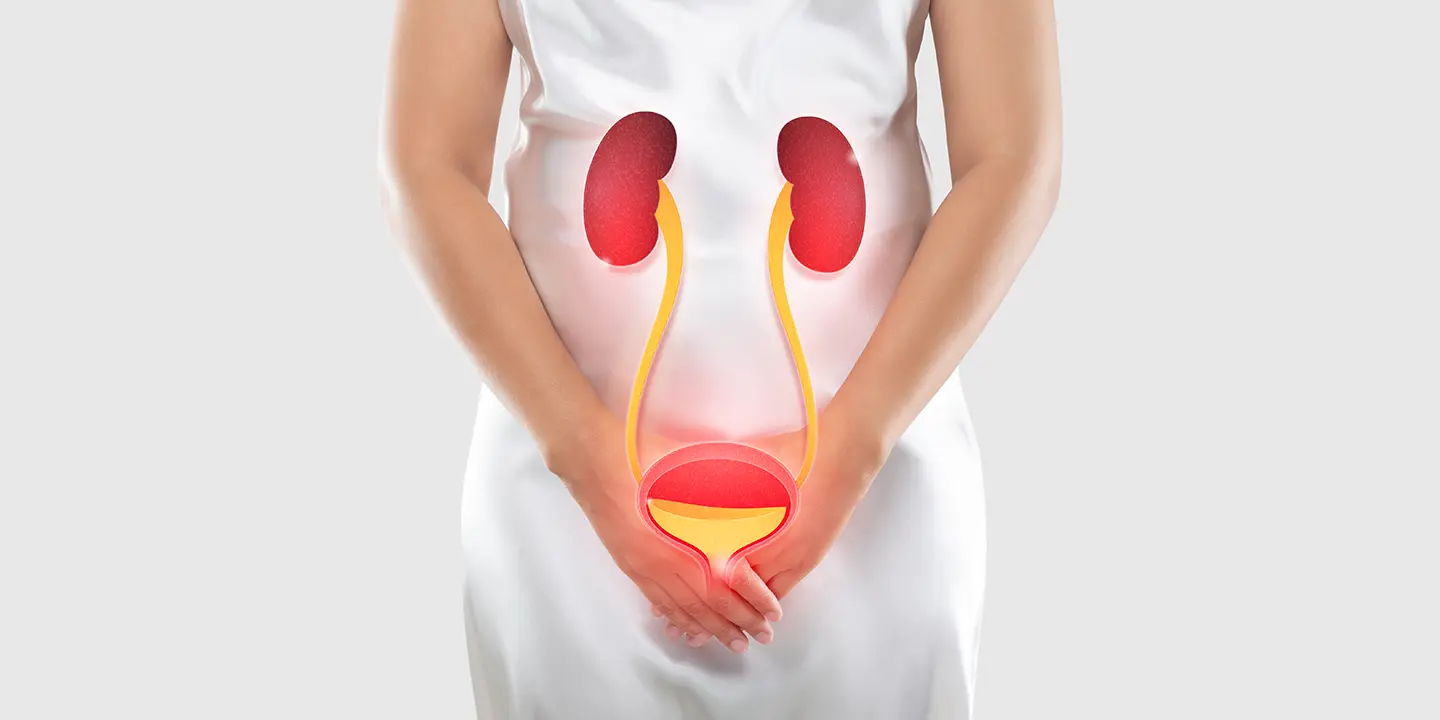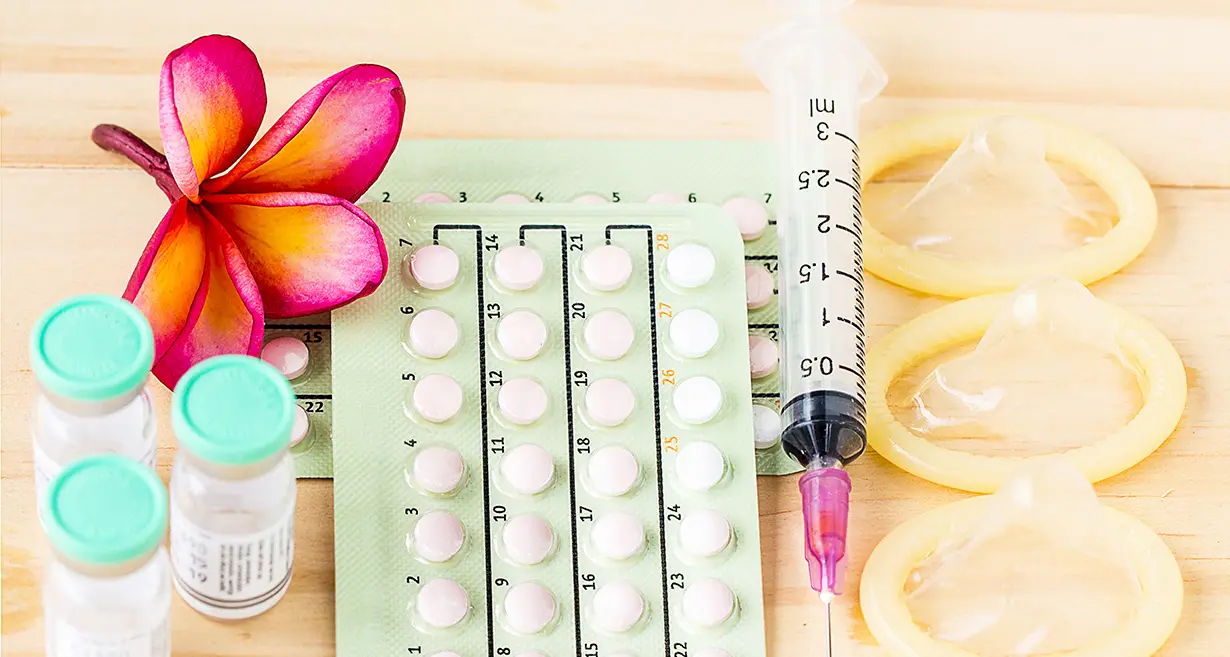
Risk content: Medical abortion is a process that uses medicine to terminate the pregnancy. It does it require any surgery or anaesthesia and can be done in a medical office or at your gynaecologist’s clinic. This abortion pill process is considered the most effective during the first trimester of pregnancy. Having an abortion decision is a significant decision that includes emotional and psychological consequences. Thus it is best to discuss all details with the best gynaecologist if you are considering this process. Knowing all about it, its side effects, possible risks, complications and alternatives is best. Queen’s Gynaecology is one of the best clinics in Delhi, offering all details about abortion pills for early pregnancy and will help you before, during and after the process. The decision for a medical abortion is very personal and should be discussed with the gynaecologist, who will help you with it.
Read This Blog In Hindi – गर्भपात की गोली लेने से पहले, दौरान और बाद में मुझे क्या उम्मीद करनी चाहिए?
In this Article
What is a medical abortion? When can someone get it done?
Medical abortion is a procedure to terminate an early pregnancy by giving abortion medicine. It does not require any surgery, is done through the ninth week of pregnancy and involves two medications. The two medicines that are used in the process are Mifepristone and Misoprostol. Mifepristone functions by blocking the hormones progesterone, without which the pregnancy cannot continue to grow in the womb. Misoprostol causes cramping and heavy bleeding to empty the uterus. Women who are nine weeks pregnant and want to terminate it soon can undergo this procedure. Your gynaecologist will use an ultrasound to confirm your pregnancy and how long you have been pregnant. If you are over nine months pregnant, many other abortion options are safe and effective. Your doctor will tell you all about it and discuss it.
Who are not the candidates for medical abortion?
Medical abortion is the safest procedure to terminate an early pregnancy through an abortion pill. But there are some for whom the process is unsafe or cannot get a medical abortion. They are
- Women who are too far along in pregnancy.
- Women who have a pregnancy outside of the uterus.
- Women who have a blood clotting disorder.
- Women who have chronic adrenal failure.
- Women who use long-term corticosteroids.
- Women who have an IUD
- Women who have an allergy to the above-mentioned abortion medicine.
- Women who do not have access to emergency care.
It is best to discuss with the best gynaecologist about your medical history before a medical abortion procedure. Women choose abortion for many reasons, and their decision is highly based on their circumstances. They may choose to have an abortion to end an unwanted pregnancy or to complete an early miscarriage. They can also opt for it because of their health complications in which carrying a baby can be life-threatening.
Medical abortion – about the medications
Medical abortion involves taking abortion pills for early pregnancy to terminate. It takes medicines orally or through the vagina and does not involve anaesthesia and surgery. It works by using the combination of two drugs that work together to induce an abortion; medical abortion pills are given to terminate the pregnancy. Gynaecologist uses combined medications, and there are two medical abortions:
- Mifepristone and Misoprostol orally.
Pregnant women will take this abortion medicine with their gynaecologist or at home. Then, 24 to 48 hours later, you will take another pill at home.
- Mifepristone and Misoprostol vaginal, buccal and sublingual.
It is the same medicine but is taken through the vagina or also taken within 24 to 48 hours after consuming the first medication.
Of the two listed above, Mifepristone works by blocking progesterone; without that, the uterine lining will thin, and the embryo will not stay attached. When another medicine, Misoprostol, is taken, it causes the uterus to contract, bleed and expel the embryo.
Related Blog – 10 Medical Abortion Myths Busted
What to expect before a medical abortion?
Before you go for a medical abortion, your gynaecologist will discuss your health history to determine if the medical abortion through pregnancy abortion pills is safe for you. They will also talk to you about the process’s pros and cons, and you can also ask all queries about the procedure or how effective the abortion pill is. After discussing all details, if you finalise to move forward and visit the expert doctor in person, they first want to confirm your pregnancy. For this, you might get an imaging test known as ultrasound; also, some states require it. Your doctor may
- Check the stage of your pregnancy by ultrasound, urine, and blood tests. Some may offer tests for sexually transmissible infections.
- Your doctor will do a confidential medical assessment and may ask you many questions regarding your medical history and other relevant information associated with your sexual and reproductive health).
- Your gynaecologist will give you detailed information about the types of abortion, what to expect, the steps involved in the process, and abortion pill aftercare.
- You may get an opportunity to ask questions to make an informed decision
- The doctor will also ask you to sign a consent form after you finalize to have a medical abortion
- You must also discuss the contraception choices after abortion that suit your needs.
Your doctor will let you know all about what you need to do to prepare for your abortion; they will also give you written instructions on how to take abortion pills. Also, you will have access to a professional throughout the process and get a number where you can call 24 *regarding any question. After taking the second medicine, you will have a lot of bleeding and cramping; thus, plan to make the entire princess more comfortable. You can be at home when you are comfortable and have a person nearby for your support. Stock up with maxi pads, books, food or whatever you need, and a heating pad for cramps.
What to expect during a medical abortion?
During your medical abortion, you will take your first abortion medicine, Mifepristone, at your gynaecologist’s clinic, but they may let you take it at home as well; the medicine keeps the pregnancy from growing in your uterus. It functions by blocking a hormone called progesterone. It is rare, but some doctors prescribe methotrexate instead of Mifepristone. After that, you will take the second abortion medicine, Misoprostol, one to two days later at home. This second pill brings on cramping and bleeding to empty your uterus. If you are a made 70 to 77 days into pregnancy, your gynaecologist will tell you to take a second dose even if you have been pregnant for less than 70 days. Some doctors prescribe you Misoprostol alone instead of Mifepristone. If you finally decide to get the abortion pill, be sure you want to terminate the pregnancy. Stopping medicines before the entire process ends can cause the unborn baby to develop severe uterine birth defects. The medical abortion procedure has many steps and consists of two different medicines.
- The first abortion pill you must take is called Mifepristone, which stops the pregnancy from growing further. Some people may feel nauseous or even start bleeding after taking medicine, but it is not shared. Your gynaecologist may also give you antibiotics to take to prevent infection.
- The second step is to take medicine called Misoprostol which you may either take right away or up to 48 hours after taking the first pill. Your gynaecologist will let you know how to take an abortion pill and when to take it. This medicine will cause cramping and bleeding to empty the womb.
- In most cases, the bleeding and cramping start within one to four hours after taking the second medicine. It is also normal to see large blood clots or other clumps of tissues during the process. You can expect a heavy and crampy period. The process is the same as a miscarriage and if you do not bleed after 24 hours of taking medicine, then call your gynaecologist to discuss the condition.
Cramping and bleeding will last several hours as most pass the pregnancy tissue in four to five hours, but it may take longer. The bleeding and pain slow down after the pregnancy tissue come out. The doctor will prescribe you a pain medicine about 30 minutes before you take the second medicine. You may also give anti-nausea medicine as well.
It is normal to have bleeding and spotting for many weeks following the abortion as it is the effects of abortion pills that take time. You must use pads, tampons, menstrual cups, and whatever you feel comfortable with. But your gynaecologist may recommend using pads for the initial few days following the abortion to track the bleeding flow. So during the medical abortion woman might have:
- Cramping,
- Hefty bleeding
- Upset stomach
- Diarrhoea
- Dizziness
- Tiredness,
- Mild fever.
What to expect after the medical abortion process?
After the medical abortion procedure, women’s menstrual periods will return in about four to six weeks, and they can expect irregular spotting or bleeding initially. Some have strong emotions and mood changes days and weeks after abortion because of a sudden hormone change. It is also possible to get pregnant just after a woman ovulates; this happens before the first period and can be soon after the abortion. Thus it is necessary to use contraception if you want to avoid pregnancy. Some common symptoms after abortion are
- Pain and cramping,
- Painful or swollen breasts,
- Light vaginal bleeding or spotting.
All about abortion aftercare
Immediately after the completion of the pregnancy abortion pills process, a person may feel tired. They need to take care of themselves physically and emotionally.
Physical care after abortion
Pain from cramping is very common after abortion, which is the same as menstrual pain. Women should have a family member with them after the abortion to take care of them for a day or to ensure that the patient gets plenty of guests. They should also avoid doing strenuous activities that are physically or emotionally linked. Following the medical abortion process, it takes time for the cervix to close, leaving the patient at an increased risk of infection. Thus they should avoid the below-listed activities to reduce the chances of an infection:
- Using tampons
- Having penetrative sex
- Putting anything in the vagina
- Swimming
However, the abortion process is short, but the abortion pill aftercare is vital and should not be taken for granted. It takes several days or weeks to recover from it physically. A person can
- try out some massaging for the stomach and lower back,
- use a heat pack,
- take pain relievers prescribed by doctors
- Attend all follow-up appointments with their gynaecologist.
Emotional care after an abortion
Finalising an abortion can be a difficult decision, and it can also be a challenging emotional experience too. Hormonal shifts increase after the abortion procedure, and it is normal and one of the abortion pill side effects that cause mood changes. After the process, women’s progesterone and estrogen levels decrease, and this causes low mood and mood changes. As the person returns to their normal menstrual cycle, their hormonal level stabilises, as earlier. Some may also experience emotional difficulties, which should never be ignored. There is a link between abortion and higher rates of depression and sleep disorders. Anxiety and other mental health conditions. To take care of yourself emotionally, you should take adequate time off work, speak with your loved ones and friends and visit your gynaecologist to discuss any difficulties.
Recovery time after the abortion
Recovery after the abortion pill process takes time and varies from person to person. With medical abortion with no side effects, patients will recover in a few days. Recovery may take time for late test abortions or surgical abortions; however, abortion-related complications can be seen in just 2 per cent of people. Some women who have abortions will have follow-up appointments in a few weeks. People who experience any abortion pill side effects or symptoms of any complications must make a quick visit to their gynaecologist to get treated.
Related Blog – Contraceptive Pills – All You Need To Know About
How will Queen’s gynaecology help you?
Unplanned pregnancy management is a term used for abortion which is the medical termination of pregnancy. Queen’s gynaecology is among the best clinics in Delhi, offering both medical and surgical abortion. The best and most experienced doctors here perform a surgical abortion in sterile aseptic conditions as it is among the safest and best abortion clinics nearest to South Delhi are in Greater Kailash and Delhi NCR. The best abortion doctors at Queen’s gynaecology handle abortion with utmost sensitivity and confidentiality. They offer medical and surgical abortion options for safe pregnancy termination for about 12 weeks.
Conclusion
For many, abortion is a medical process that does not cause further complications. However, having an abortion can be a difficult decision and can be challenging mentally, emotionally, and physically. It is best to talk to your gynaecologist before you finalise the decision. You should talk to your doctor as they will let you know how effective the abortion pill is, how to take it and how to take care afterwards. Please book your appointment at Queen’s gynaecology; however, the decision to have a medical abortion is highly personal, and it is best to visit your gynaecologist. Queen’s gynaecology will help you and guide you through this process and ensure you know what to expect before and after the procedure. The best doctors will discuss all the abortion pill processes and the effects of abortion pills on you.
FAQs
The pain and bleeding will vary from person to person and can range from moderate to severe. It is vital to use maxi pads after the procedure, along with heating pads, to get rid of the pain.
No, abortion medicine does not have any effect on your future pregnancy. Medicines leave your body in some days and will not affect future pregnancies.
You can go home and rest after the procedure and resume normal activities on the same day. You have to avoid activities that can increase your pain.
After the abortion, pregnancy symptoms like vomiting and nausea usually go away within three days. Breast tenderness may take a week to ten days to disappear.
Visiting the doctor after the procedure is unnecessary unless you experience any complications. Your gynaecologist will tell you when to come to ensure that the medicines work well. You should visit the gynaecologist if you need any instructions or want to discuss fertility.








































































































































































































